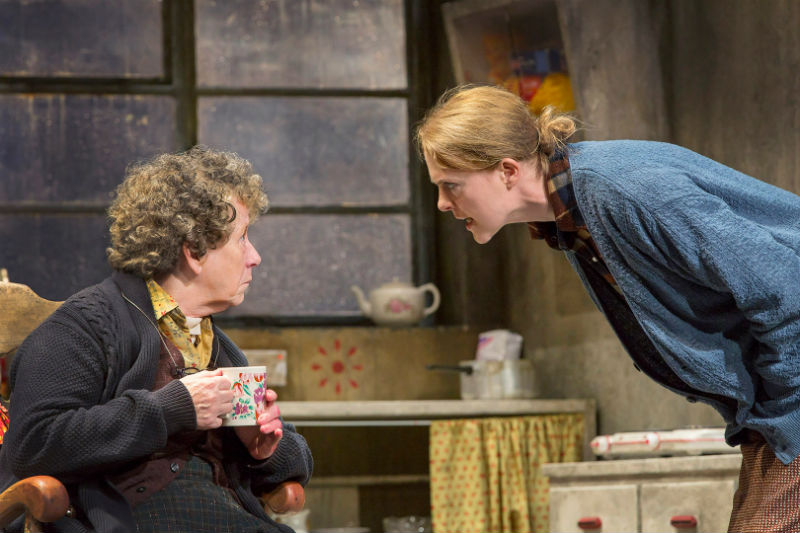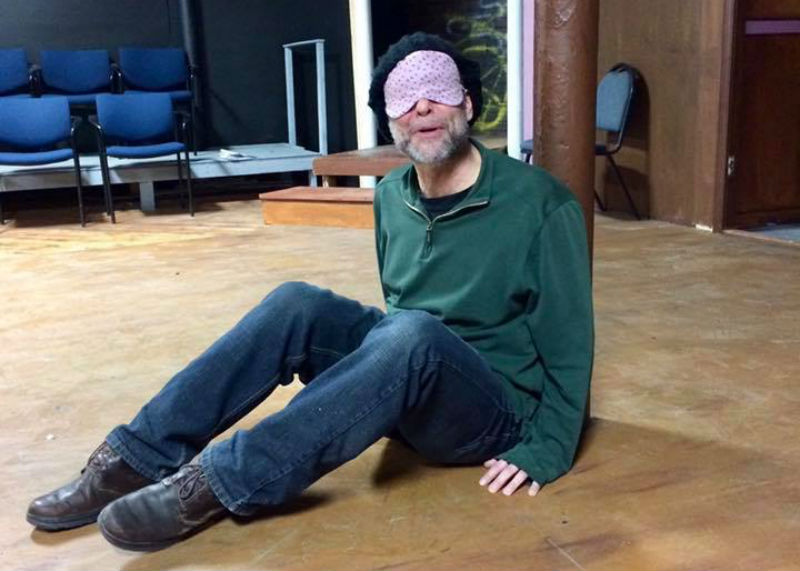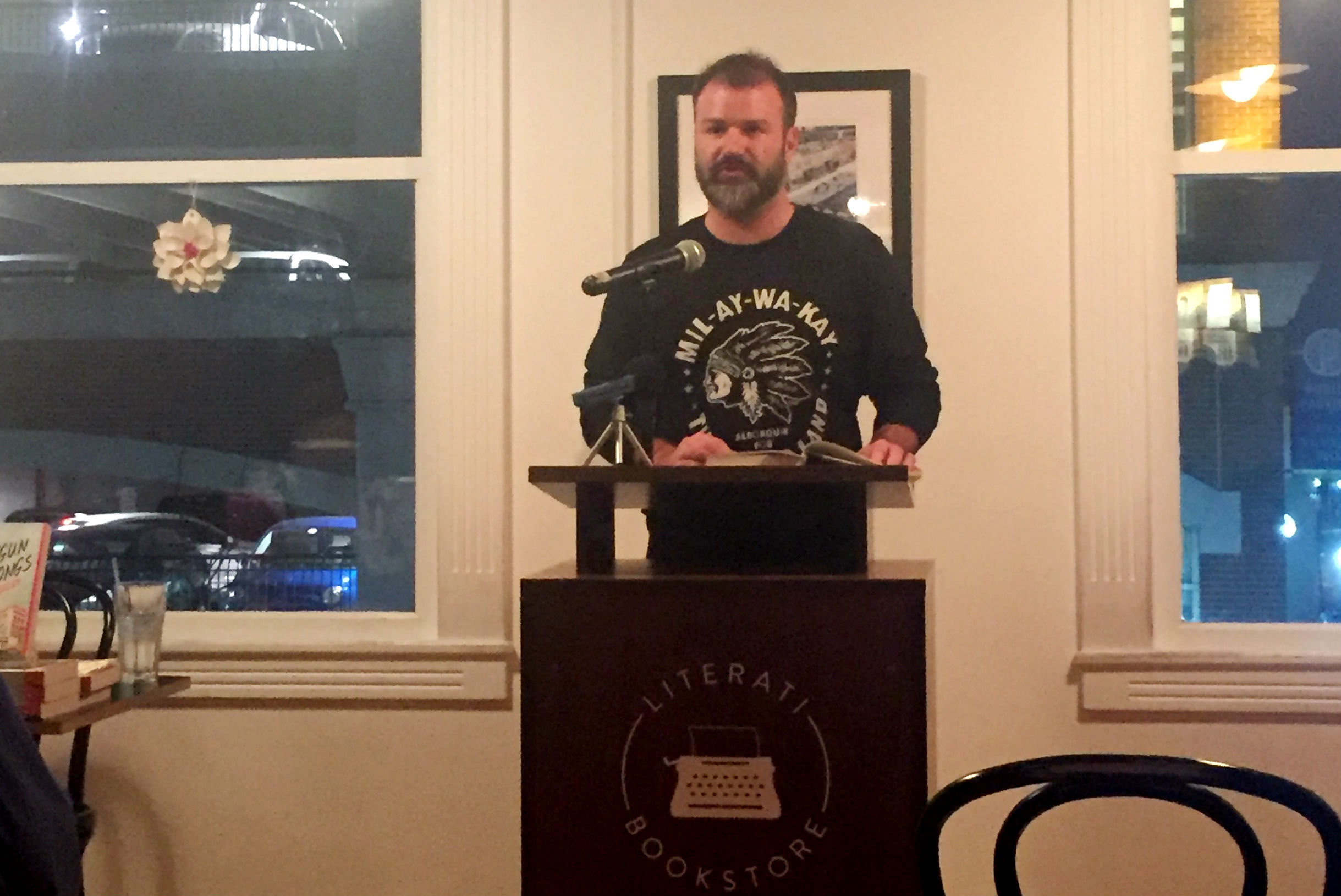AAFF 2017 | Amazing Stories: "Following Seas" & more
Following Seas
Amazing Stories | Features in Competition
My dad often bemoans the lack of color in today’s movies. Back in the day, he says, the colors were more vibrant and jumped out at you from the screen. The reds were deeper, the yellows brighter, and the blues like the color of the ocean. If Dad was not in Florida enjoying a well-deserved retirement, I would insist that he come to the screening of Following Seas. Filmed by the Griffith family on their epic around the world adventures in the '60s and '70s, the ocean blue smacks you in the face and you are happy to let it do so.
Bob and Nancy Griffith met while on their respective boats in Honolulu Harbor. A successful veterinarian, Bob retired early to fulfill a lifelong dream of sailing the world. He and Nancy fell in love, married, and set out on the adventure of a lifetime all the while shooting film and still pictures to document their travels.
The Following Seas documentary by Tyler Kelley and Araby Williams highlights the family's voyages with their young child on the Ahwahnee boat.
AAFF 2017 | Asian Focus: "Axes of Dwelling: The Video Art of Yuan Goangming" & more
"Axes of Dwelling: The Video Art of Yuan Goangming"
Asian Focus | New Media | Short Films
We've all seen countless homes, city streets, and natural landscapes in our lifetimes -- but never seen them quite the way Yuan Goangming does. The Taiwanese video artist's work is full of such commonplace imagery, but through innovative presentation and perspective, Yuan imbues familiar sights with surprising new feelings of both wonderment and unease. A wide variety of his works will be shown during the career retrospective "Axes of Dwelling," for which Yuan will appear and participate in a discussion with University of Michigan professor of Asian cinema Markus Nornes.
AAFF 2017 | Music Focus: "Tony Conrad: Completely in the Present" & more
Tony Conrad: Completely in the Present
Feature in Competition | Music
For a man who was a paragon for expanding the paradigms of what constitutes art, music, and film, the subject of Tyler Hubby’s documentary Tony Conrad: Completely in the Present looks like any other rumpled khakis-and-button-down-shirt-wearing older professor. But when Conrad opens his mouth and the words begin to tumble out, his flowing imagination, sense of mischief, and singular view of the world make him anything but a tenured bore.
After graduating with a degree in mathematics from Harvard in 1962 and working as a computer programmer for a year, Conrad spent the rest of his life rebelling against anything as structured as those disciplines.
“He’s definitely got issues with authority,” says Tony Oursler, an artist and frequent Conrad collaborator.
AAFF 2017 | New Media: "Post-Internet and the Moving Image" & more
"Post-Internet and the Moving Image"
New Media "> Shorts Program
"Film was the medium of the 20th century," video artist Jaakko Pallasvuo somberly intones in voiceover in his short video Bergman. "Film is radio. Film is painting. Film is a drawing on sand, about to be swept away by the ocean."
The descriptor "video artist" is used pointedly here, rather than "filmmaker," because Pallasvuo makes that distinction quite clearly himself in Bergman. Pallasvuo's short essay on the great director Ingmar Bergman juxtaposes brief clips of Bergman's films with recognizable icons of the internet age, like the Gmail and PayPal logos. Pallasvuo drily asks: "Do all video artists fantasize about becoming directors? It's a fantasy about traveling in time."
In Andrew Rosinski's curated program "Post-Internet and the Moving Image," Bergman is just one of 13 offerings that are ostensibly short films but assert themselves as something other in their embrace of technology. Rosinski characterizes the program as an attempt to define the nascent genre of "post-internet cinema," noting that most of his selections were created to be viewed online, not in a movie theater.
AAFF 2017 | Political: "Socrates of Kamchatka" & more
Socrates of Kamchatka
Political | Amazing Stories | World Premiere
The first thing that strikes you as you enter the world of Socrates of Kamchatka is that your experience is being intermediated by the whimsical soliloquy of its titular world-weary horse. This gives the film a fable-like sheen and makes the central dramatic arc -- a rural community’s struggle to adapt to unceasing waves of national economic and political change -- at once both familiar and strange.
Socrates is no mincer of words, and he tells his story with deft aplomb, fully realizing the benefits of his equine perspective on human happenings and behavior. “Mother always bit my thighs for asking questions,” our narrator confides, before adding, “But then why name me Socrates?”
AAFF 2017 | Totally Out There/Classic AAFF: "The Pink Egg" & more
The Pink Egg
Features in Competition | Totally Out There | Classic AAFF
If you're going to make a film that fits the aesthetic of the Ann Arbor Film Festival, Luis Bunuel makes for a near-perfect starting point. Director Jim Trainor begins The Pink Egg with a quote from the celebrated surrealist: "You can find all of Shakespeare and De Sade in the lives of insects." That sentence offers a pithy declaration of artistic intent, and Trainor follows through, offering viewers a one-of-a-kind evocation of the animal world.
Employing boldly minimalistic and colorful sets that could double for an unhinged, low-budget children's program, Trainor casts humans clad in long-sleeved, hooded unitards to act out the mating rituals, lifecycles, and surprisingly human experiences of various wasps, bees, and insects. Alternately humorous, tragic, and inspiring, The Pink Egg remains a defiantly uncommercial picture due to the lack of dialogue, and the seemingly bizarre actions of the nameless characters. You may find yourself asking why some of the female characters paint pink and blue tubes with lotion, meant to represent seminal fluid, and why those tubes suddenly change color.
Fabulous Fiction Firsts #629, #630 & #631

Fabulous Fiction Firsts #629
Beijing journalist Lijia Zhang's debut novel Lotus is inspired by her grandmother's deathbed revelation that she was sold into prostitution at an early age.
Set in contemporary Shenzhen, China’s “City of Sins”, Lotus is one of the "ji" (Chinese word for chicken, a derogatory name for prostitutes) working at the Moonflower Massage Parlor. Originally from a impoverished village in northern China, she allows her family to think she waitresses in an upscale restaurant, sending her earnings home to support her family and to send her younger brother to university.
Knowing the shelf life of someone in her situation is finite, Lotus casts her eye among her regulars -- Funny Eye, Family Treasure -- hoping for a more permanent arrangement. In the meantime, she befriends Hu Binbing, a quiet and reclusive photojournalist who is hoping his documentary project on the lives of the "ji" will bring him the deserved recognition. But once his photographs of Lotus are published in a national magazine, his standing in the Communist party as well as their relationship is threatened.
"'A Newborn Calf Isn't Afraid of Tigers' is a typical chapter title in Lotus... Readers will find the entire text rich in Chinese proverbs, as well as folk wisdom of a more prosaic variety. Characters employ sage sayings in spoken form, as a kind of parlor game, and the author scatters aphorisms liberally throughout the narrative, with an effect that is both charming and thought-provoking....Some first novels, especially those birthed in creative writing classes, go heavy on self-consciously poetic language ...The images Zhang gives us, in contrast, are uncomplicated, concise and touching" (NPR)
"Pretty Woman but without all the glitz" (Library Journal).
Integrated Identities: "The Beauty Queen of Leenane" at the Power Center

When two ordinary, scribbled-on pieces of paper in an envelope magically morph into a miserable woman’s key to happiness -- and your heart pounds as you hawkishly, breathlessly watch the precarious letter being set down, picked up, walked around the stage, and handed off -- that’s the power of live theater.
But it takes pros to achieve that level of emotionally tense stage magic, and when it comes to interpreting Martin McDonagh’s work, there may be none on Earth that can match Ireland’s renowned Druid Theatre Company, which performed The Beauty Queen of Leenane March 9-11 at the Power Center, courtesy of University Musical Society.
Small Towns, Universal Emotions: Nickolas Butler at Literati
“I couldn’t write about something like the New York City social scene, because I know nothing about it,” said Nickolas Butler frankly at his reading at Literati on Wednesday, March 8. Butler’s third book, The Hearts of Men, has just been released and it shares a rural Wisconsin setting with his previous two books, Shotgun Lovesongs and Beneath the Bonfire.
Butler himself lives outside of Eau Claire, Wisconsin, with his family and is able to brilliantly capture rural Midwestern life in his work, as only someone who truly lives it would be able to do.
“In part, I write about these characters and this setting because that’s what I’m familiar with,” said Butler. “Although I have a very nice house and a very nice property, it’s just a little bit down the road until I’m in what is essentially rural poverty. I go into Cleghorn, which is the nearest town, and there’s literally one intersection and there’s a bar and a taxidermy shop.” He laughed a little. “You can go in [to the bar], and you and four of your buddies could drink as much as you possibly could and there’s no way that you could ever run a tab up in there that’s more than $65.”
Ellipsis Theatre fought a plague throughout its house to produce Shakespeare's "Twelfth Night"

Ellipsis Theatre’s production of Twelfth Night has been beset by a tragedy of the sort usually only seen performed on the stage of Shakespearean prose -- namely, a plague.
Many of the actors caught serious cases of the flu, to the point where the show did not go on during the first weekend of its run and was pushed back a full week. The night I saw the show, one actor (playing Sir Toby) had just joined the cast in the last three days and another actor who was playing Orsino was doubling for Sir Andrew since the original Sir Andrew had turned green just hours before.
Such extreme changes in performance schedules will almost certainly affect audience levels for the run, which is a shame; I strongly recommend that you go see Twelfth Night this upcoming weekend if you can, assuming that the cast has not all fainted into comas.



































